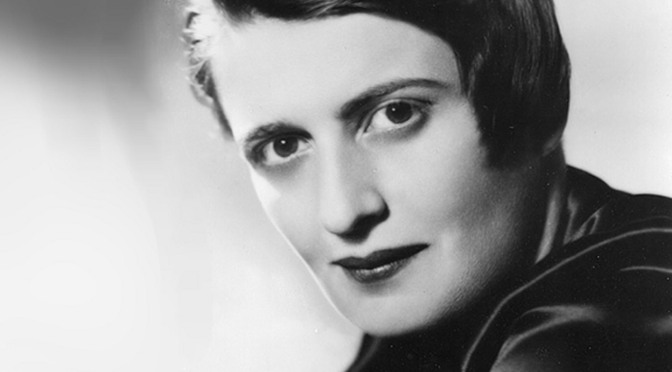This article was originally published at The Atlas Society.
In the mid-1960s, a handful of individuals from Ayn Rand’s inner circle set out to end the draft. Few know the story of their activism. Just how powerful was their influence over Nixon?
IT WAS NIGHTFALL IN BOSTON; April 16, 1967. A wet, icy wind blew off the Charles River and howled down the wide channel of Massachusetts Avenue, gusting into narrow alleyways, and rattling the windows of Jordan Hall on Gainsborough Street. Inside, anticipation was building as the murmuring crowd took their seats on rows of white, wooden benches. Then she appeared; America’s most controversial individualist: Ayn Rand. People leaned over the balconies to catch a better glimpse of the best-selling novelist and diminutive philosopher who stood at the podium. Applause broke out; Rand took in the scene, scanning the room. Her penetrating gaze drifted up to the second level balcony, past the large, gilded clock which faced her. She began in earnest: “The question of the draft is, perhaps, the most important single issue debated today,” Rand said, “but the terms in which it is being debated are a sorry manifestation of our anti-ideological ‘mainstream.’… A volunteer army is the only proper, moral—and practical—way to defend a free country.”
Ayn Rand’s speech, called “The Wreckage of the Consensus,” was her first sustained look at the Vietnam War and the draft. Just one week later, Dr. Martin Luther King would stand at the same podium. And four months prior, General Lewis B. Hershey, the long-time head of Selective Service and the public face of the draft, addressed the forum.
Rand opposed the draft because it was a statist infringement on the right of the individual to own his own life.
Ayn Rand’s position on the draft, like so many of her ideas, was a contrast to both Left and the Right. Rand opposed the draft because it was a statist infringement on the right of the individual to his own life, and because it relied on an ethic of duty and sacrifice. Rand’s philosophical system,Objectivism, which grounded man’s right to life in his faculty of reason and the conditions of his survival, provided a context for consistent, integrated arguments against the draft.
The young intellectuals in Rand’s inner circle—students of Objectivism, at the time—often used the context of her philosophy as the basis of their own activism. And it was now that they began to ask themselves, “What will it take to end the draft?” Continue reading Did Objectivists End the Draft? →






